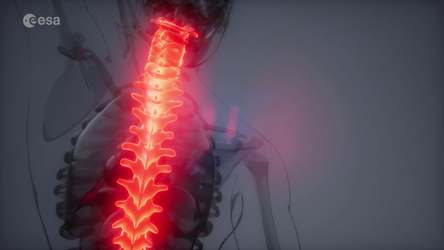
Aging. We research. You benefit.
Did you know that living in space has similar effects on the body to natural aging on Earth? Spaceflight research is helping astronauts live healthier in space, but also everybody on Earth to grow old gracefully.
As Europe’s population continues to significantly age, fiscal costs linked to pensions, health care and long-term care are expected to rise over the coming decades. Population's ageing is one of the most significant demographic and social trends of the 21st century, affecting nearly all the countries in the world.
Over the years, research conducted in space helped scientists get a better understanding of the biological processes hidden in our bodies playing an important role in the aging of the human body.
In particular the muscle and the skeletal systems have been studied in weightlessness offered by the International Space Station over the last 20 years: the results of these findings are promising in providing countermeasures to aging-related diseases.
Muscle loss (like that suffered by people forced in bed for long periods) and osteoporosis are just two examples of ailments that are having an increasing impact on human society, as the world's population ages.
Research on bone and muscle loss in space helps scientists better understand the modifications in the bone and muscle structures.
Each of the topics covered in this short film can have large positive return for patients with muscle and bone pathologies here on Earth, enabling new prevention and treatment procedures to be developed.
The step to space research is closer than you might think. Get involved with spaceflight research via https://www.esa.int/spaceflightAO. Find out about our commercial partnerships and opportunities in human and robotic exploration via https://www.esa.int/explorationpartners to run your research in microgravity as well.






